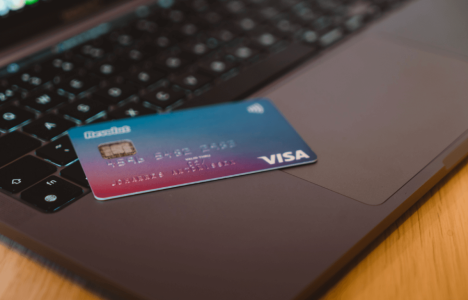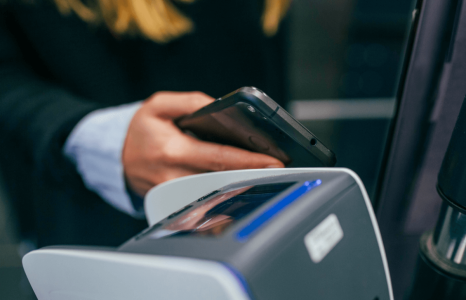Huge changes coming: 'Buy Now, Pay Later' schemes will now be treated like credit cards!
- Replies 14
'Buy Now, Pay Later' (BNPL) schemes have gained significant popularity in recent years, allowing consumers to make purchases without immediate payment.
BNPL schemes function by enabling consumers to buy items and subsequently pay for them through instalments over time, often without interest or fees. However, it is important to note that this convenience comes at a price.
While BNPL schemes offer convenience, consumer advocacy groups have raised concerns about their potential drawbacks. These include the risk of accumulating excessive debt, challenges in managing repayments, and a lack of transparency regarding terms and conditions.
With many people already struggling to make ends meet, these schemes could be putting vulnerable consumers further at risk.
To address these concerns, the Australian government has implemented stricter regulations for these services. BNPL schemes will now be classified as credit products, subjecting them to the corresponding regulations and oversight.

Following a consultation process, Financial Services Minister Stephen Jones announced that BNPL service providers would need to hold a credit licence, implement hardship provisions, and maintain minimum standards of conduct. This is aimed at better protecting consumers using these increasingly popular payment alternatives.
The government's decision emerged following the release of a Treasury paper in November last year, which examined potential regulatory approaches for BNPL services. The paper presented three options for consideration:
The popularity of BNPL experienced a remarkable surge during the 2021-22 financial year, witnessing an impressive seven million active accounts and transactions totalling over $16 billion. This staggering figure represents a substantial 37 per cent increase compared to the previous year.
Minister Jones emphasised the necessity for stricter regulations by highlighting that BNPL services resemble credit in their nature and behaviour, thereby carrying the associated risks that credit entails.
'BNPL looks like credit, it acts like credit, it carries the risks of credit,' Mr Jones said.
Treasurer Jim Chalmers echoed Minister Jones' sentiments, acknowledging the significant role of BNPL in the economy while expressing concerns about the lack of effective checks and balances.
In an interview with ABC News, Chalmers stated, 'They've got a role to play, but we need to make sure that we manage the risks.'
The decision to regulate BNPL as a credit product primarily aims to address marketing risks and safeguard individuals who are most vulnerable to its adverse consequences. This includes women, First Nations communities, and those with lower incomes.
One area of concern that requires attention is the potential issue of individuals simultaneously managing multiple BNPL accounts.
Despite the implementation of tighter regulations, the government does not intend to eliminate these services completely.
Treasurer Chalmers clarified this stance by stating, 'We want people who can afford to participate in Buy Now, Pay Later to be able to access it, but there needs to be the right rules and regulations around it.'
The recent regulatory changes have been met with a positive response from key industry players such as Afterpay and Zip.
Afterpay, in a statement, expressed its support for the new regulations, considering them a 'strong first step' that would bring benefits to both consumers and businesses. The company emphasised its commitment to collaborating with the government, consumer groups, and other stakeholders in order to refine the details of the regulations.
Peter Gray, the co-founder of Zip, also welcomed the regulatory measures, stating that they strike a balance between safeguarding consumers from potential harms, instilling confidence in industry stakeholders, and fostering competition and innovation.

Earlier this year, a survey shed light on a concerning trend among BNPL users, revealing that a significant portion of them are struggling to meet their repayment obligations. As a result, these individuals are experiencing a surge in debt and increased financial stress.
Jessica, a single parent, found herself compelled to turn to the popular BNPL provider Zip in order to cope with the rising cost of living during the holiday season. Explaining her situation, Jessica shared that while some of her purchases were impulsive, they stemmed from a prolonged period of deprivation.
She admitted to succumbing to the allure of being able to finally afford certain things, even if it meant taking some risks. 'I played with the devil a bit,' she said.
Jessica's story resonates with many Australians who find themselves grappling with the ongoing cost-of-living crisis, indicating that the challenges faced by BNPL users are reflective of broader economic struggles within the country.
Unfortunately, it appears that these difficulties are not going anywhere anytime soon.

If you're currently—or considering—using Buy Now, Pay Later services, it's absolutely crucial to stay informed about the recent regulatory changes and be mindful of the potential risks involved.
Just like a credit card, the BNPL system can easily become overwhelming if you're not careful with your spending habits. It's important to exercise financial wisdom and make informed decisions to avoid any unforeseen challenges down the road.
Now, we're curious to hear your thoughts on this. What do you think of these regulatory changes? Do you happen to own a credit card, and if so, do you use it regularly?
Do you believe that treating BNPL as credit services will ultimately assist more people, or do you think it could potentially encourage excessive spending? Don't hesitate to share your insights and join the conversation in the comments section below!
BNPL schemes function by enabling consumers to buy items and subsequently pay for them through instalments over time, often without interest or fees. However, it is important to note that this convenience comes at a price.
While BNPL schemes offer convenience, consumer advocacy groups have raised concerns about their potential drawbacks. These include the risk of accumulating excessive debt, challenges in managing repayments, and a lack of transparency regarding terms and conditions.
With many people already struggling to make ends meet, these schemes could be putting vulnerable consumers further at risk.
To address these concerns, the Australian government has implemented stricter regulations for these services. BNPL schemes will now be classified as credit products, subjecting them to the corresponding regulations and oversight.

Australia's Buy Now Pay Later (BNPL) system is set to be regulated by the federal government due to concerns of potential danger to consumers. Credit: Unsplash/Cardmapr.
Following a consultation process, Financial Services Minister Stephen Jones announced that BNPL service providers would need to hold a credit licence, implement hardship provisions, and maintain minimum standards of conduct. This is aimed at better protecting consumers using these increasingly popular payment alternatives.
The government's decision emerged following the release of a Treasury paper in November last year, which examined potential regulatory approaches for BNPL services. The paper presented three options for consideration:
- Allowing services to remain primarily self-regulated.
- Subjecting services to limited regulation under the Credit Act.
- Applying the same regulatory framework as credit card providers.
The popularity of BNPL experienced a remarkable surge during the 2021-22 financial year, witnessing an impressive seven million active accounts and transactions totalling over $16 billion. This staggering figure represents a substantial 37 per cent increase compared to the previous year.
Minister Jones emphasised the necessity for stricter regulations by highlighting that BNPL services resemble credit in their nature and behaviour, thereby carrying the associated risks that credit entails.
'BNPL looks like credit, it acts like credit, it carries the risks of credit,' Mr Jones said.
Treasurer Jim Chalmers echoed Minister Jones' sentiments, acknowledging the significant role of BNPL in the economy while expressing concerns about the lack of effective checks and balances.
In an interview with ABC News, Chalmers stated, 'They've got a role to play, but we need to make sure that we manage the risks.'
The decision to regulate BNPL as a credit product primarily aims to address marketing risks and safeguard individuals who are most vulnerable to its adverse consequences. This includes women, First Nations communities, and those with lower incomes.
One area of concern that requires attention is the potential issue of individuals simultaneously managing multiple BNPL accounts.
Despite the implementation of tighter regulations, the government does not intend to eliminate these services completely.
Treasurer Chalmers clarified this stance by stating, 'We want people who can afford to participate in Buy Now, Pay Later to be able to access it, but there needs to be the right rules and regulations around it.'
The recent regulatory changes have been met with a positive response from key industry players such as Afterpay and Zip.
Afterpay, in a statement, expressed its support for the new regulations, considering them a 'strong first step' that would bring benefits to both consumers and businesses. The company emphasised its commitment to collaborating with the government, consumer groups, and other stakeholders in order to refine the details of the regulations.
Peter Gray, the co-founder of Zip, also welcomed the regulatory measures, stating that they strike a balance between safeguarding consumers from potential harms, instilling confidence in industry stakeholders, and fostering competition and innovation.
Key Takeaways
- The Australian government has implemented stricter regulations for Buy Now, Pay Later (BNPL) services, treating them as credit products.
- This move comes in response to concerns about the risks posed by BNPL, such as high levels of debt and difficulty in managing repayments.
- While aiming to protect vulnerable consumers, the government also acknowledges the importance of allowing access to BNPL for those who can afford it, emphasising the need for balanced rules and regulations.
Earlier this year, a survey shed light on a concerning trend among BNPL users, revealing that a significant portion of them are struggling to meet their repayment obligations. As a result, these individuals are experiencing a surge in debt and increased financial stress.
Jessica, a single parent, found herself compelled to turn to the popular BNPL provider Zip in order to cope with the rising cost of living during the holiday season. Explaining her situation, Jessica shared that while some of her purchases were impulsive, they stemmed from a prolonged period of deprivation.
She admitted to succumbing to the allure of being able to finally afford certain things, even if it meant taking some risks. 'I played with the devil a bit,' she said.
Jessica's story resonates with many Australians who find themselves grappling with the ongoing cost-of-living crisis, indicating that the challenges faced by BNPL users are reflective of broader economic struggles within the country.
Unfortunately, it appears that these difficulties are not going anywhere anytime soon.

BNPL services will be required to meet modified responsible-lending obligations, which the government said would be scalable to the risk level of the product. Credit: Unsplash/Jonasleupe.
If you're currently—or considering—using Buy Now, Pay Later services, it's absolutely crucial to stay informed about the recent regulatory changes and be mindful of the potential risks involved.
Just like a credit card, the BNPL system can easily become overwhelming if you're not careful with your spending habits. It's important to exercise financial wisdom and make informed decisions to avoid any unforeseen challenges down the road.
Now, we're curious to hear your thoughts on this. What do you think of these regulatory changes? Do you happen to own a credit card, and if so, do you use it regularly?
Do you believe that treating BNPL as credit services will ultimately assist more people, or do you think it could potentially encourage excessive spending? Don't hesitate to share your insights and join the conversation in the comments section below!








